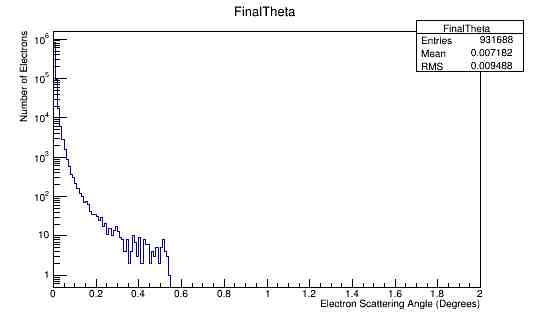Difference between revisions of "Looking at effects of Solenoid on Phi Shifts"
Jump to navigation
Jump to search

| Line 4: | Line 4: | ||
<center>[[File:FinalTheta.jpg]]</center> | <center>[[File:FinalTheta.jpg]]</center> | ||
| + | <pre> | ||
| + | Px=evt.FnlMom[0]/1000; | ||
| + | Py=evt.FnlMom[1]/1000; | ||
| + | Pz=evt.FnlMom[2]/1000; | ||
| + | px=evt.MolMom[0]/1000; | ||
| + | py=evt.MolMom[1]/1000; | ||
| + | pz=evt.MolMom[2]/1000; | ||
| + | |||
| + | KE=evt.FnlKE/1000; | ||
| + | ke=evt.MolKE/1000; | ||
| + | </pre> | ||
=[[Solenoid_effect_in_ 2_GeV_and_up_range|Solenoid effect > 2GeV]]= | =[[Solenoid_effect_in_ 2_GeV_and_up_range|Solenoid effect > 2GeV]]= | ||
Revision as of 20:44, 5 April 2016
Using Moller Data to alter energy range
Using the Moller event file MollerScattering_NH3_4e8incident.dat, we can use the fact that GEMC will only create a particle based on the Moller electron. While the data for the scattered electron is passed within a LUND file, kinematically this electron doesn't leave the beam area, and thus never enters the detectors to be recreated.

Px=evt.FnlMom[0]/1000;
Py=evt.FnlMom[1]/1000;
Pz=evt.FnlMom[2]/1000;
px=evt.MolMom[0]/1000;
py=evt.MolMom[1]/1000;
pz=evt.MolMom[2]/1000;
KE=evt.FnlKE/1000;
ke=evt.MolKE/1000;